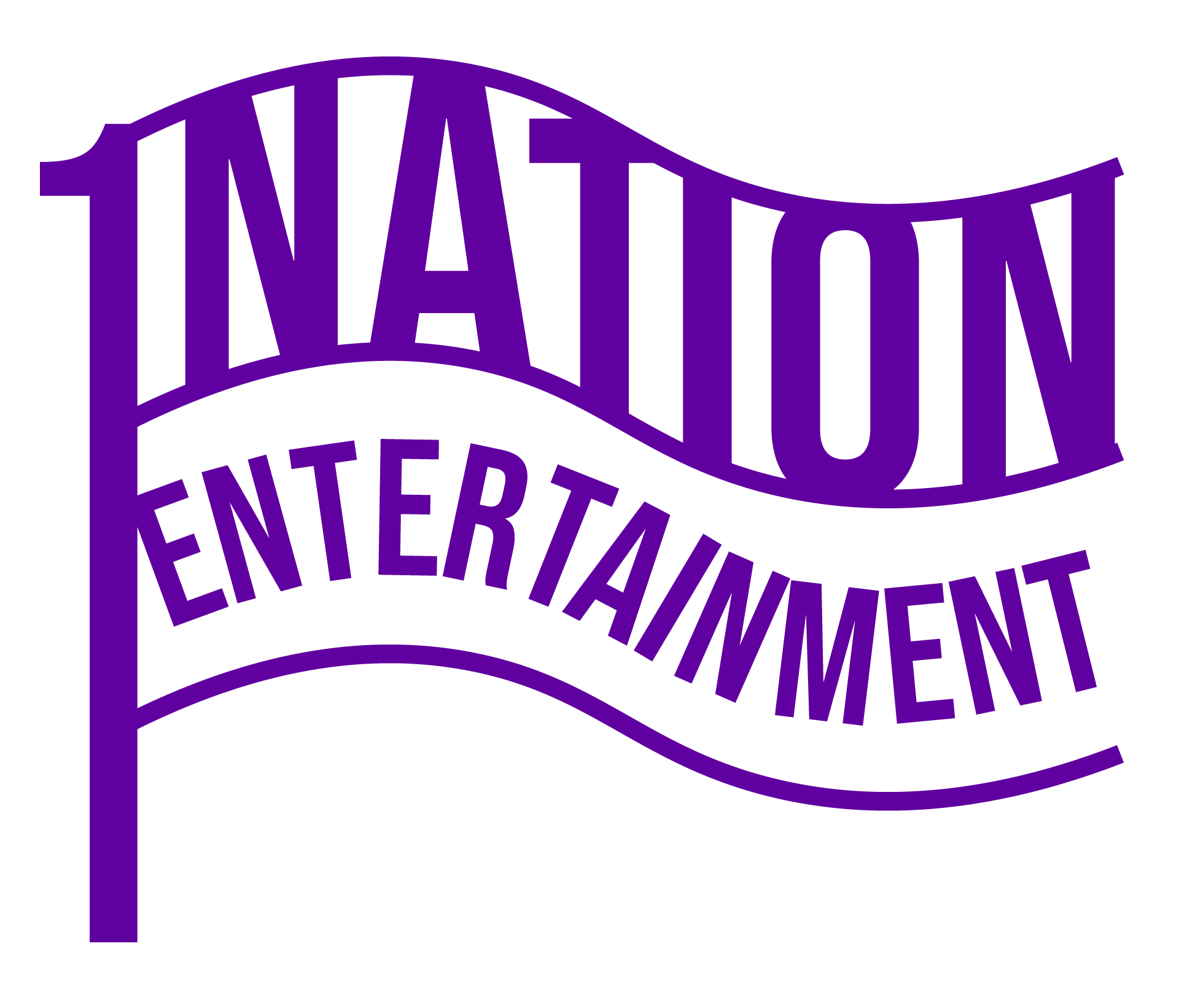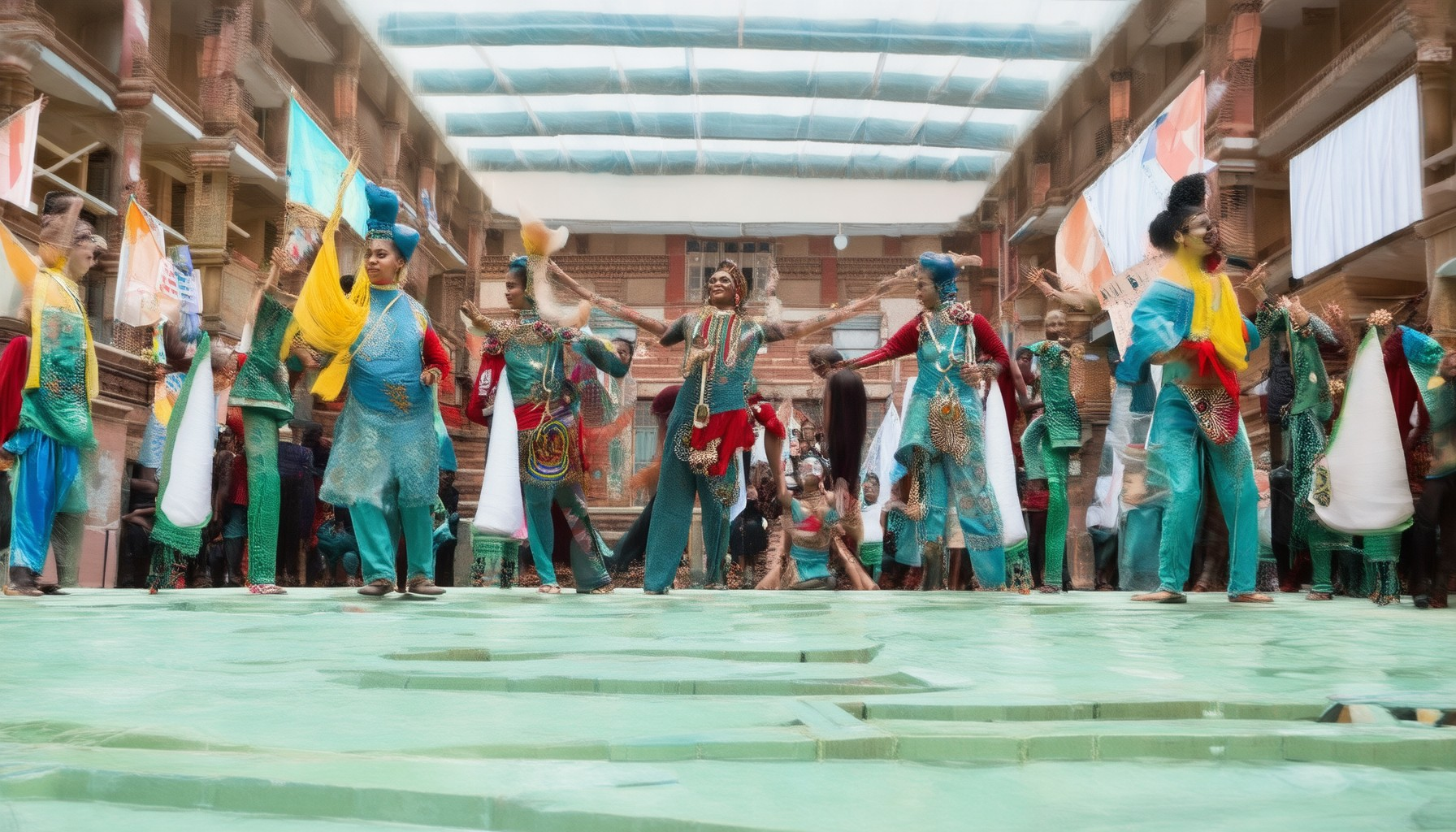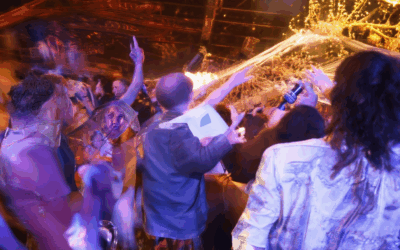Cultural events are a vibrant reflection of our diverse world, offering a unique lens through which we can explore traditions, customs, and human experiences. For those who share a passion for culture, a well-crafted cultural events blog can serve as a powerful platform to connect with like-minded individuals, celebrate global heritage, and inspire meaningful exploration. However, creating a standout cultural events blog requires a strategic approach that balances creativity with SEO optimization. In this comprehensive guide, we’ll delve into the essential elements needed to elevate your cultural events blog to new heights, ensuring it stands out in the competitive digital landscape. From understanding your audience to crafting compelling content and driving engagement, this step-by-step guide offers actionable insights to help you achieve long-term success.
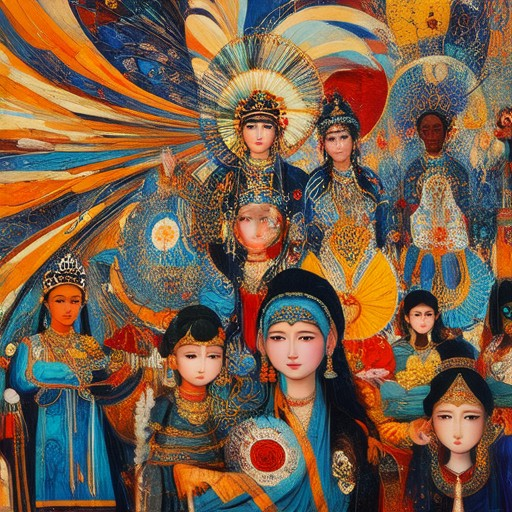
What Makes a Successful Cultural Events Blog?
A successful cultural events blog is defined by its ability to engage, inform, and grow a dedicated audience. Here’s how it achieves this:
- High-Quality Content :
- Offer detailed reviews of events, highlighting performances, production values, and unique experiences.
- Feature exclusive interviews with artists, producers, and event organizers to provide insider insights.
- Share behind-the-scenes stories and personal anecdotes to add depth and relatability.
- SEO Optimization :
- Use strategic keywords related to cultural events, entertainment, and specific genres to improve search engine visibility.
- Craft compelling meta descriptions that include primary keywords.
- Properly use header tags (H2, H3) to structure content effectively.
- Reader Engagement :
- Include interactive features like polls, quizzes, and guest contributions to encourage participation.
- Facilitate discussions by enabling comments on articles and encouraging readers to share their experiences.
- Use social media to promote content and engage with followers, fostering a sense of community.
- Timeliness and Relevance :
- Stay updated on the latest cultural trends, events, and news to provide fresh and current content.
- Regularly publish articles on upcoming events, event recaps, and cultural analysis.
- Incorporate multimedia elements like videos, photos, and audio clips to enhance reader engagement.
- Niche Focus :
- Specialize in a specific genre or type of cultural event, such as festivals, theater productions, or music concerts.
- Provide comprehensive coverage, including detailed event analyses and comprehensive guides.
- Monetization Strategies :
- Explore affiliate marketing opportunities by promoting event tickets and related products.
- Partner with sponsors or brands aligned with the blog’s audience for advertising and content sponsorship.
- Offer premium content through newsletters or membership tiers for loyal readers.
- Technical Optimization :
- Ensure the blog is mobile-responsive and loads quickly to enhance user experience.
- Optimize images and reduce file sizes to improve loading times.
- Create an intuitive navigation menu for easy access to content.
- Networking and Collaboration :
- Collaborate with other bloggers, influencers, and event organizers for guest blogging opportunities and cross-promotion.
- Build relationships with PR firms and press teams to secure exclusive event announcements and press passes.
By combining these elements, a cultural events blog can establish itself as an authoritative and trusted source in the entertainment and culture space, resonating deeply with its audience and achieving long-term success.
Key Elements Needed for a Successful Cultural Events Blog
To establish a successful cultural events blog, several critical components must come together to create engaging, informative, and shareable content. Here’s a breakdown of the essential elements:
- Content Strategy
- Niche Focus : Define a specific area within cultural events that resonates with your target audience. Whether it’s music festivals, theater performances, or art exhibitions, narrowing your focus ensures relevance and authority.
- High-Quality Content : Deliver in-depth articles, reviews, and features that provide unique insights. Include exclusive interviews with performers, behind-the-scenes looks at event production, and analyses of cultural trends.
- Multimedia Integration : Enhance your blog by incorporating photos, videos, and audio clips from events. Visual and auditory content makes the blog more immersive and appealing to readers.
- Audience Engagement
- Consistent Interaction : Engage your audience by responding to comments, hosting Q&A sessions, and inviting them to participate in polls or contests related to upcoming events.
- Call-to-Action (CTA) : Encourage sharing of content by adding social media buttons and creating shareable infographics or memes about trending events.
- Community Building : Foster a sense of belonging by creating forums or groups where readers can discuss their favorite events and share recommendations.
- Technical Aspects
- SEO Optimization : Use relevant keywords and meta descriptions to improve search engine visibility. Regularly update content to keep it fresh and relevant.
- Mobile Responsiveness : Ensure your blog is optimized for mobile devices, as many users access content on the go.
- Fast Loading Times : Optimize images and reduce clutter to ensure quick load speeds, which improve user experience and SEO performance.
- Monetization Strategies
- Affiliate Partnerships : Collaborate with ticketing platforms or event organizers to earn commissions from sales generated through your blog.
- Sponsored Content : Partner with brands or companies related to cultural events to feature ads or sponsored posts.
- Subscription Models : Offer premium content or newsletters for a fee, providing additional value to dedicated readers.
- Future Planning
- Content Expansion : Consider developing a podcast or video series to complement your blog and reach different segments of your audience.
- Event Tie-ins : Host live events or webinars tied to your blog content to further engage your audience and promote your brand.
- Continuous Improvement : Regularly analyze analytics to identify what resonates with your audience and adjust your content strategy accordingly.
By combining these elements, you can create a cultural events blog that not only informs but also builds a loyal and engaged community around your content.
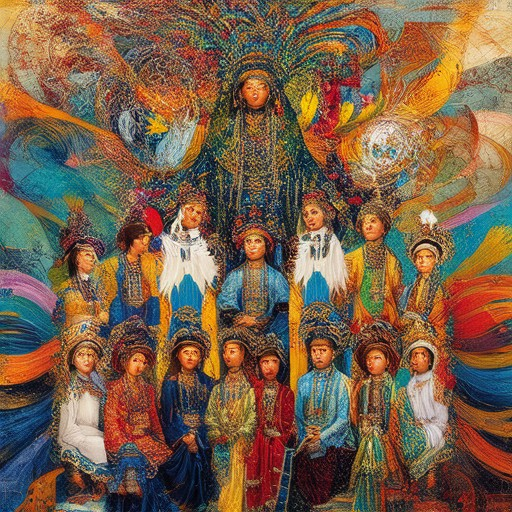
The Essential Elements for a Successful Cultural Events Blog
To establish a thriving cultural events blog, several key components must come together to create engaging content, attract readers, and build a loyal audience. Here’s a breakdown of the essential elements:
1. Engaging and Diverse Content
- Diverse Topics: Cover a wide range of cultural events, including music festivals, theater performances, art exhibitions, and cultural trends. Explore niche markets like indie music showcases or traditional cultural celebrations.
- Storytelling: Use compelling narratives to highlight unique aspects of events, such as behind-the-scenes stories, artist interviews, or attendee experiences.
- Multimedia Integration: Incorporate visuals like high-quality images, videos, and infographics to enhance the reader experience.
- Timely Coverage: Provide real-time updates and exclusive previews to keep readers informed and engaged.
2. Regular Updates and Consistency
- Content Frequency: Post consistently, ideally 2-3 times weekly, to maintain reader interest and establish trust.
- Stay Updated: Keep abreast of the latest cultural happenings through industry news, event calendars, and trend analyses.
- Content Calendar: Plan ahead using a content calendar to ensure a steady flow of relevant topics.
3. SEO and Keyword Optimization
- Research Keywords: Use tools like Ahrefs or SEMrush to identify keywords related to cultural events, such as “cultural events blog” or “festival coverage.”
- On-Page SEO: Optimize titles, meta descriptions, and headers with these keywords while maintaining readability.
- Internal Linking: Link to previous articles and related content to encourage exploration of your site.
- Outbound Links: Link to reputable sources, such as Eventbrite or Ticketmaster, to provide added value.
4. Audience Understanding and Engagement
- Know Your Audience: Conduct surveys or analyze analytics to understand preferences and tailor content accordingly.
- Interactive Features: Include quizzes, polls, or event recommendations to increase engagement.
- Community Building: Encourage discussion threads, social media interaction, and user-generated content.
- Social Media Integration: Cross-promote blog content on platforms like Instagram, Twitter, and Facebook to reach a broader audience.
5. Monetization Strategies
- Affiliate Programs: Partner with vendors to earn commissions on ticket sales or event-related products.
- Sponsored Posts: Collaborate with event organizers or brands for sponsored content while maintaining authenticity.
- Premium Content: Offer in-depth guides, exclusive interviews, or event recaps for a fee.
- Partnerships: Form alliances with local venues or ticketing platforms like Eventbrite to promote events.
6. Visual and Multimedia Enhancements
- High-Quality Images: Use professional photos to showcase event highlights and attract visual learners.
- Videos and Live Streams: Broadcast live event coverage or recorded sessions to engage viewers.
- Infographics: Create visually appealing charts or graphs to present data and trends.
- Podcasts or Webinars: Offer audio content to complement written articles, featuring discussions on cultural trends.
By combining these elements, you can create a cultural events blog that not only informs but also captivates and grows your audience. Stay adaptable to industry changes and always seek ways to innovate while keeping your content authentic and valuable.
Explore our cultural events coverage and stay updated on the latest happenings in the entertainment world.

Key Elements Needed for a Successful Cultural Events Blog
To establish a successful cultural events blog, several critical components must come together to create engaging, informative, and shareable content. Here’s a breakdown of the essential elements:
- Content Strategy
- Niche Focus : Define a specific area within cultural events that resonates with your target audience. Whether it’s music festivals, theater performances, or art exhibitions, narrowing your focus ensures relevance and authority.
- High-Quality Content : Deliver in-depth articles, reviews, and features that provide unique insights. Include exclusive interviews with performers, behind-the-scenes looks at event production, and analyses of cultural trends.
- Multimedia Integration : Enhance your blog by incorporating photos, videos, and audio clips from events. Visual and auditory content makes the blog more immersive and appealing to readers.
- Audience Engagement
- Consistent Interaction : Engage your audience by responding to comments, hosting Q&A sessions, and inviting them to participate in polls or contests related to upcoming events.
- Call-to-Action (CTA) : Encourage sharing of content by adding social media buttons and creating shareable infographics or memes about trending events.
- Community Building : Foster a sense of belonging by creating forums or groups where readers can discuss their favorite events and share recommendations.
- Technical Aspects
- SEO Optimization : Use relevant keywords and meta descriptions to improve search engine visibility. Regularly update content to keep it fresh and relevant.
- Mobile Responsiveness : Ensure your blog is optimized for mobile devices, as many users access content on the go.
- Fast Loading Times : Optimize images and reduce clutter to ensure quick load speeds, which improve user experience and SEO performance.
- Monetization Strategies
- Affiliate Partnerships : Collaborate with ticketing platforms or event organizers to earn commissions from sales generated through your blog.
- Sponsored Content : Partner with brands or companies related to cultural events to feature ads or sponsored posts.
- Subscription Models : Offer premium content or newsletters for a fee, providing additional value to dedicated readers.
- Future Planning
- Content Expansion : Consider developing a podcast or video series to complement your blog and reach different segments of your audience.
- Event Tie-ins : Host live events or webinars tied to your blog content to further engage your audience and promote your brand.
- Continuous Improvement : Regularly analyze analytics to identify what resonates with your audience and adjust your content strategy accordingly.
By combining these elements, you can create a cultural events blog that not only informs but also builds a loyal and engaged community around your content.
What Makes a Cultural Events Blog Successful?
A successful cultural events blog hinges on several key factors, including content quality, audience engagement, SEO strategy, and staying ahead of trends. Here’s how to maximize your blog’s impact:
1. High-Quality Content
- Unique Perspective : Offer fresh insights on festivals, art, and performances. Avoid generic coverage and aim to provide deeper analysis.
- Storytelling : Use compelling narratives to make your content memorable and relatable.
- SEO-Friendly Keywords : Incorporate relevant keywords naturally into titles, meta descriptions, and content to improve search engine visibility.
2. Targeted Audience
- Define Your Audience : Understand who your readers are. Tailor content to their interests, whether it’s music, theater, or cultural trends.
- Engage with Readers : Respond to comments, host Q&A sessions, and encourage sharing on social media to build a loyal community.
3. SEO Optimization
- Keyword Research : Use tools like Google Keyword Planner to identify popular search terms in your niche.
- Content Structure : Optimize titles and subheadings with primary and LSI keywords to attract clicks and improve rankings.
4. Engagement Strategies
- Social Media Integration : Share blog posts on platforms like Instagram, Twitter, and Facebook to reach a broader audience.
- Contests and Giveaways : Boost engagement by hosting contests related to cultural events or artist interviews.
5. Stay Updated
- Follow Trends : Keep track of emerging artists, new festivals, and evolving cultural movements to maintain relevance.
- Curate Content : Repost influential articles and videos from trusted sources to add value to your readers.
6. Consistent Posting
- Regular Updates : Maintain a consistent publishing schedule to keep your audience engaged and establish trust.
- Diversify Content : Mix reviews, interviews, and opinion pieces to keep your content varied and interesting.
7. Monetization
- Affiliate Marketing : Partner with vendors to earn commissions on sales made through your blog.
- Sponsored Content : Collaborate with brands or promoters for paid content opportunities, ensuring it aligns with your blog’s mission.
8. Technology Integration
- Use Tools : Leverage platforms like Google Analytics and SEMrush to monitor traffic and optimize performance.
- Email Newsletters : Build an email list to share exclusive content and updates with your subscribers.
By focusing on these elements, you can create a cultural events blog that not only attracts readers but also stands out in a competitive landscape. Keep experimenting, engage with your audience, and stay committed to your vision for long-term success.
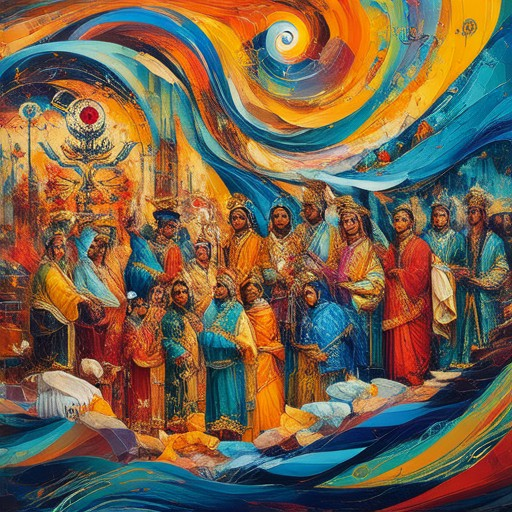
The Key Benefits of a Successful Cultural Events Blog
A successful cultural events blog offers numerous advantages for connecting with diverse audiences, showcasing cultural richness, and fostering a loyal community. Here’s a breakdown of its primary benefits:
- Connect with Diverse Audiences
- Attracts people from various cultural backgrounds
- Reaches global audiences through digital platforms
- Fosters cross-cultural understanding and appreciation
- Showcase Cultural Richness
- HIGHLIGHTS diverse traditions, festivals, and customs
- Shares stories and experiences from different cultures
- Promotes cultural heritage and history
- Build a Loyal Community
- Creates a space for like-minded individuals to connect
- Encourages regular engagement and interaction
- Establishes trust and brand loyalty
- Drive Engagement and Inspiration
- Provides valuable insights and recommendations
- Inspires travel plans and cultural explorations
- Encourages sharing of personal cultural experiences
- Support Local and Global Causes
- Promotes awareness of social and cultural issues
- Supports local cultural initiatives and events
- Contributes to global cultural preservation efforts
By leveraging the power of storytelling and digital reach, a cultural events blog can become a vital resource for anyone looking to explore, celebrate, and participate in cultural experiences from around the world.
For more insights into how we can help you achieve these benefits, visit our homepage or subscribe to our newsletter for exclusive updates on cultural trends and events.
